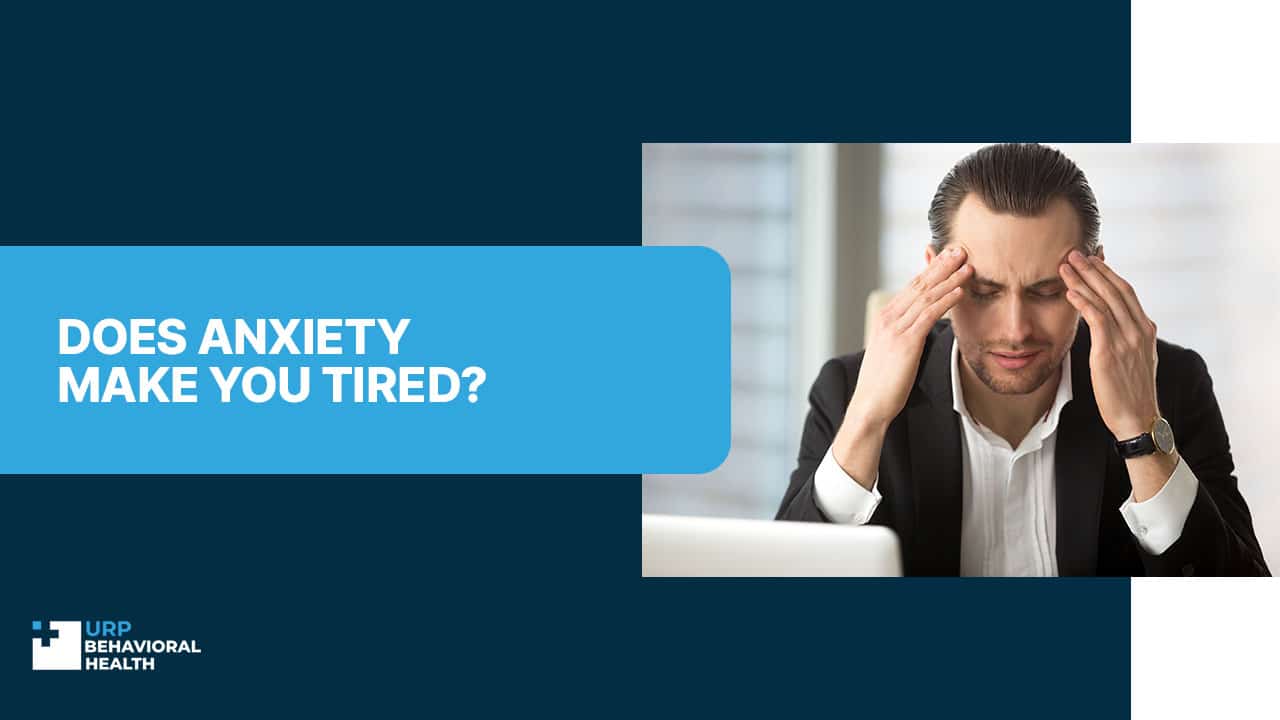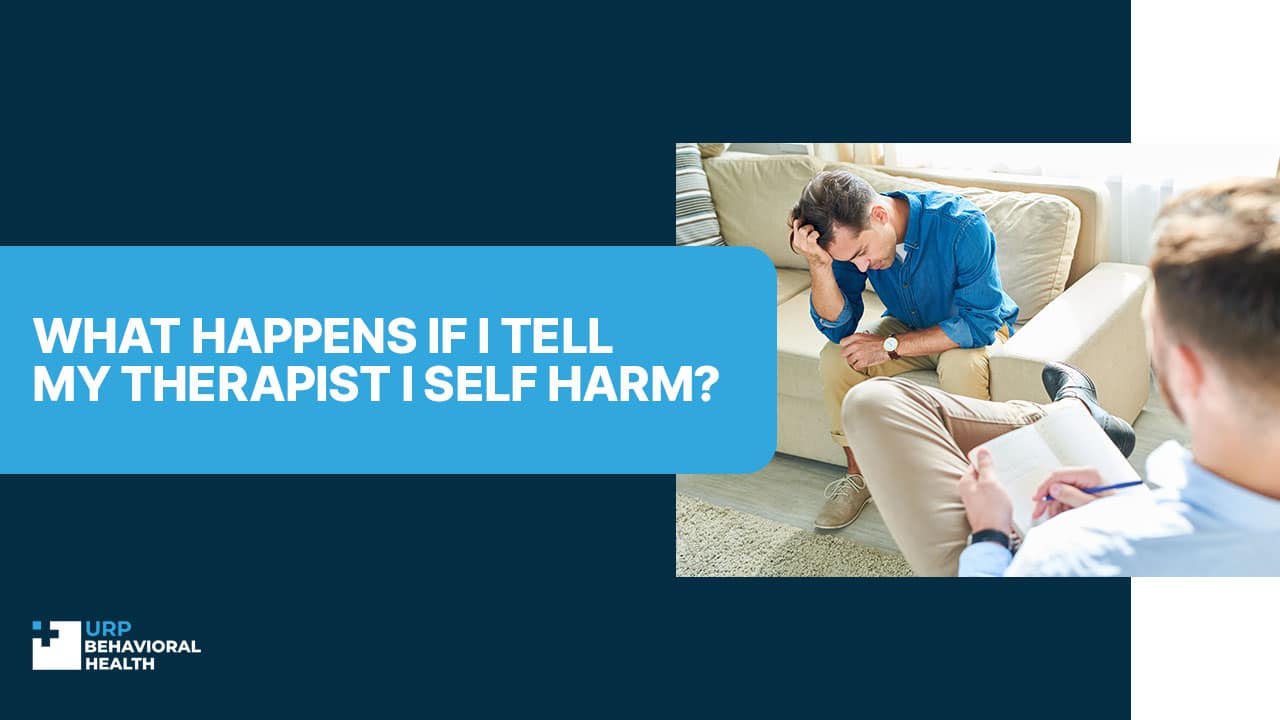
Does Anxiety Make You Tired?
Feeling anxious is a norm for an individual from time to time. This feeling is a kind of protective coping strategy which helps to avoid life-threatening situations and factors. Yet, constant feelings of anxiety are exhausting and devastating and fatigue from anxiety is quite regular.
Especially, when it comes to repeating anxiety attacks which result in an anxiety disorder, can anxiety cause fatigue, why does it happen, and how can one cope with the feeling of being tired after such attacks? These questions are tremendous and this article is dedicated to them.
Can AnxietyMake You Tired
Scientists say that the relationship between anxiety and fatigue is not 100% clear today [1]. Yet, the association between anxiety, depression, musculoskeletal pain, and fatigue was examined recently and the results show us that the feeling of being tired is significantly associated with neuroticism, anxiety, and MS pain and there are both environmental and genetic factors impacting this correlation.
As a result, if you tend to be anxious, tiredness is among the side symptoms which may occur along with others during panic attacks, anxiety attacks, phobia-related issues, etc.
This phenomenon, like a coin, has two sides. On the one hand, you may feel tired after an anxiety attack because of the exhaustion of your nervous system caused by extra tension and the stress you experienced. On the other side, there are specific mechanisms which bond anxiety and tiredness and create strong and logical connections between these two feelings.
Contact our admissions team now to begin your path toward a brighter future.
What Does Anxiety Do to Your Body?
Feeling anxious from time to time is not hazardous to your well-being. You may feel distressed, you may feel exhausted, or you may get a turnback reaction like being exaggerated or overfilled with emotions after the issue of anxiety perishes. Yet, when you have repeated anxiety attacks, it brings more harm to your body.
- Anxiety evokes feelings of fading and dizziness.
- It provokes heart attacks and makes your heart racing.
- Often, an anxiety attack leads to high blood pressure.
- In terms of psyche, anxiety leads to sleep disorders or difficulties in falling asleep.
- At once, it often causes digestive malfunctions like nausea, diarrhea, or bloating, and with time, it can lead even to the IBS manifestation.
- Often, anxiety is the root of headaches and harsh migraines.
- Limb trembling and lost concentration are also characteristic of anxiety attacks.
- The feeling of after-anxiety fatigue is also quite common.
- The worst is that in severe cases of anxiety disorders, you can become disabled.
Thus, even such a common symptom like constant feeling of tiredness shouldn’t be discarded if it is exposed right after your anxiety attack.
Is There Any Connection BetweenAnxiety AndTiredness
The correlation, as was said above, is still unclear. But it truly exists as you may feel anxiety when tired due to low energy levels and the inability to perform efficiently when it is needed. That’s quite normal if you feel so as no one loves to feel weak and underperforming.
At once, if the correlation is back-way, it’s a serious signal. When anxiety makes you tired and exhausted, it may alert you about transforming into a more severe form, for example, generalized anxiety disorder or OCD.
Why Does Anxiety Cause Fatigue? Enclosing the Mechanisms of Anxiety-Induced Tiredness
Today, ¾ of patients with constant fatigue have comorbid mood, anxiety or depression disorders [2]. Along with genetic predisposition for both anxiety disorders and tiredness, there are environmental and physical factors triggering this combo to occur.
- Often, tiredness is caused in anxiety-diagnosed people due to such environmental triggers as COVID-19, anemia, viral infections, cancer, and depression [3].
- The main psycho-physical mechanisms, pushing the feeling of fatigue to increase during the anxiety attack include the production of stress hormones at the moment of the attack when the body comes into the state of heightened alertness aka ‘fight-or-flight’. These hormones impact sleep patterns and lead to sleep disorders, they attack muscle tissues and make them over-tensioned.
- At once, the whole situation when you feel anxious causes physical and mental tension which then triggers headaches, heartaches, muscle pain, and other symptoms contributing to the overall feeling of tiredness.
How to Manage Fatigue Caused by Anxiety
In terms of your everyday routines, if you understand that your tiredness is caused by extra anxiety levels, you can try to manage anxiety and fatigue by the following practices:
- Regular exercises and workouts because physical training increases the levels of hormones, namely HGH and Testosterone [4] which are pain-relieving, energy-increasing, and self-estimate boosting.
- Balanced eating. Eating habits can help you manage tiredness. If you eat enough lean proteins, vegetables, greenery, and fruits, combined with moderate levels of unsaturated fats (dark chocolate or fish for example) you can manage energy levels and get an endorphin boost to decrease the feeling of fatigue.
- Regular sleep practices are also helpful. Try to relax and apply meditation practices to sleep enough as it may help fight both anxiety and tiredness.
Don’t wait - confidential help is available right now for you or your loved one.
Which Treatment Options Are Relevant for Relieving the Feeling of Being Tired After the Anxiety Attack
If you regularly raise the question of why anxiety makes you tired, your fighting these two comorbid states may also include a psychotherapeutic approach. Along with maintaining a healthy lifestyle and training regularly, cognitive behavioral therapy methods also bring results. They provide a patient with an anxiety disorder with the opportunity to manage their reactions to stress, develop a coping strategy to fight anxiety and learn how to relax, ground, and behave in certain situations.
You should understand that separately these methods are workable, but in their synergy, they provide truly magic results and improve the overall well-being of the patient.
Feel Tired After the Anxiety Attack? Get the Help for Your Relieving
If you have issues with anxiety attacks related to tiredness, it’s time to change the game. You can get urgent and relevant help from the URP Behavioral Health center and its highly professional specialists working with CBT and other methods with proven efficiency. Just start your path to a stronger, healthier, and more energized future with us to make anxiety your past, not your future.
Reach out today and let us create a treatment plan designed around your needs.
Resources:
- Fatigue symptoms in relation to neuroticism, anxiety-depression, and musculoskeletal pain. A longitudinal twin study https://pmc.ncbi.nlm.nih.gov/articles/PMC5991664/
- Chronic fatigue and anxiety/depression: a twin study https://pubmed.ncbi.nlm.nih.gov/11772848/
- What is the link between anxiety and fatigue? https://www.medicalnewstoday.com/articles/anxiety-and-fatigue#other-causes
- Hormonal responses and adaptations to resistance exercise and training https://pubmed.ncbi.nlm.nih.gov/15831061/
















